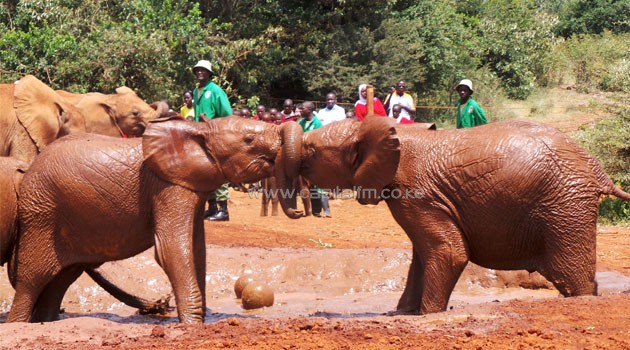
While Steiner admitted that there remains an absence of empirical evidence directly linking poaching to terrorism, he maintained that it did not negate the very real possibility that one fed the other.
NAIROBI, Kenya, May 29 – Poaching among other types of illegal trade in wildlife are set to top the agenda at the first ever United Nations Environment Assembly (UNEA) to be held in Nairobi in June.
United Nations Environment Programme (UNEP) Executive Director Achim Steiner said they are planning to table a report on the growing trade and the threat it poses at the meeting.
“This is not a small thing. The threat it poses is not to be underestimated,” he reiterated, “because we are confronted with a battle that we’re not winning.”
And while Steiner admitted that there remains an absence of empirical evidence directly linking poaching to terrorism, he maintained that it did not negate the very real possibility that one fed the other.
“What we have is anecdotal evidence that poaching has in some instances financed armed conflict which could be extended to terrorism and that is what we will be presenting,” he said.
Kenya’s Permanent Representative to UNEP Martin Kimani said Kenya was pleased that poaching would top the agenda at the assembly as it hits close to home.
“Elephant and rhino poaching are something the government is fighting day and night to eradicate so we’re happy to put our heads together with the rest of the world and host this very important conversation,” he said.
Steiner said while UNEP was already actively involved in the fight against poaching, the Assembly would not only allow for the world to speak and act with a united voice against it, it would inject some much needed impetus into the fight.
“We need to address the consumer end because there will be no point to poaching if there is no market for the trophies. And with China being one of the biggest consumers of ivory we’re already holding exhibitions there, in train stations and elsewhere, to sensitise the public on the high price there is to pay for that trophy, that mythical cure,” he said.
Awareness Steiner and his team plan on raising at the highest levels with over 100 government representatives expected at the UNEA between June 23 and 27.
“None other than UN Secretary General Ban Ki moon will be leading this conversation with Ministers, Chief Justices and Chief Executives, about 1,200 delegates in total,” Steiner enumerated.
Also top on the agenda is sustainable development; an area in which, both Steiner and Kimani agreed, Kenya was again invested in.
“What Kenya is doing with geo-thermal, solar and wind to power its development is what we’re looking to see replicated throughout the developing world,” Steiner said, “it’s only a matter of years before Africa’s population rivals that of China and we’d like to learn from the mistakes the industrialised world by powering their development using fossil fuel.”
And UNEA, Steiner added, was the result of the global recognition that development and the environment need not be mutually exclusive.
“If you take away nothing else take away that for the first time, all 193 members of the UN, plus Observer States and all major stakeholders, will be represented in the new assembly – thereby bestowing upon UNEA and new level of representation, legitimacy and authority,” he concluded.









































